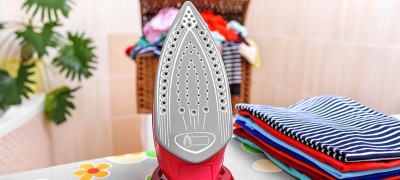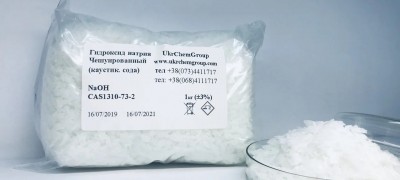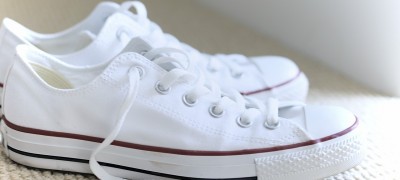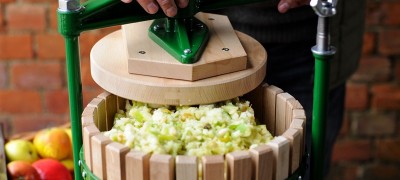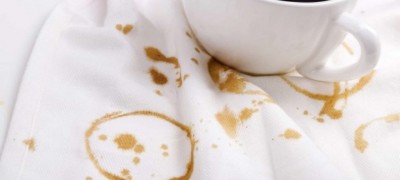How and how to wash cosmetic makeup brushes
Makeup is an important part of creating an image if you want an image. Business, romantic, evening make-up - various styles, various techniques and a huge cosmetic arsenal of tools and tools that are designed to correctly and evenly distribute cosmetics on the face. Hide imperfections in the skin, and even correct the look.
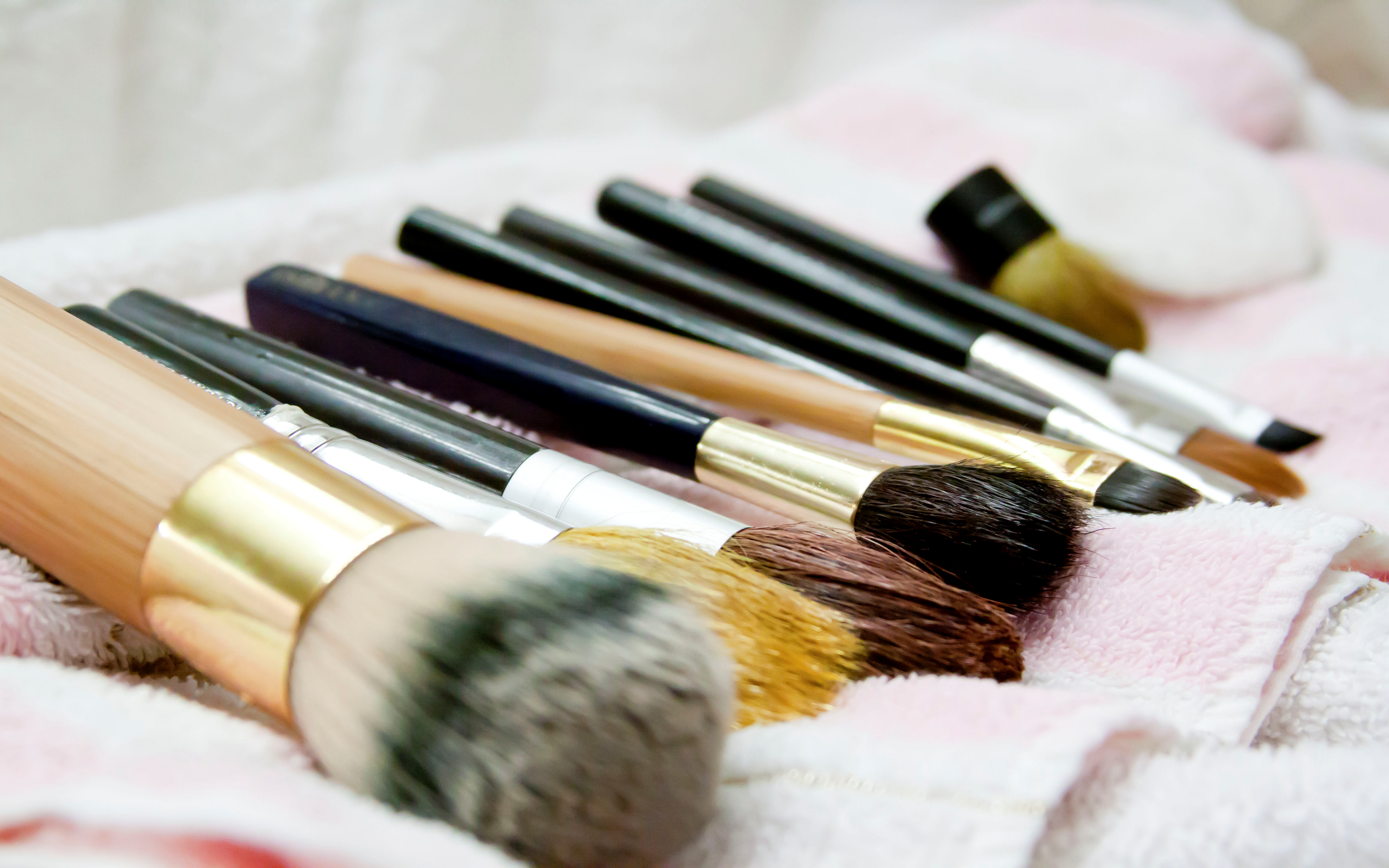
The secret of success is not only in the technique of applying makeup, but also in the proper care of the instruments. What are the features and rules for cleaning makeup brushes, and how to turn this procedure into a daily make-up ritual.
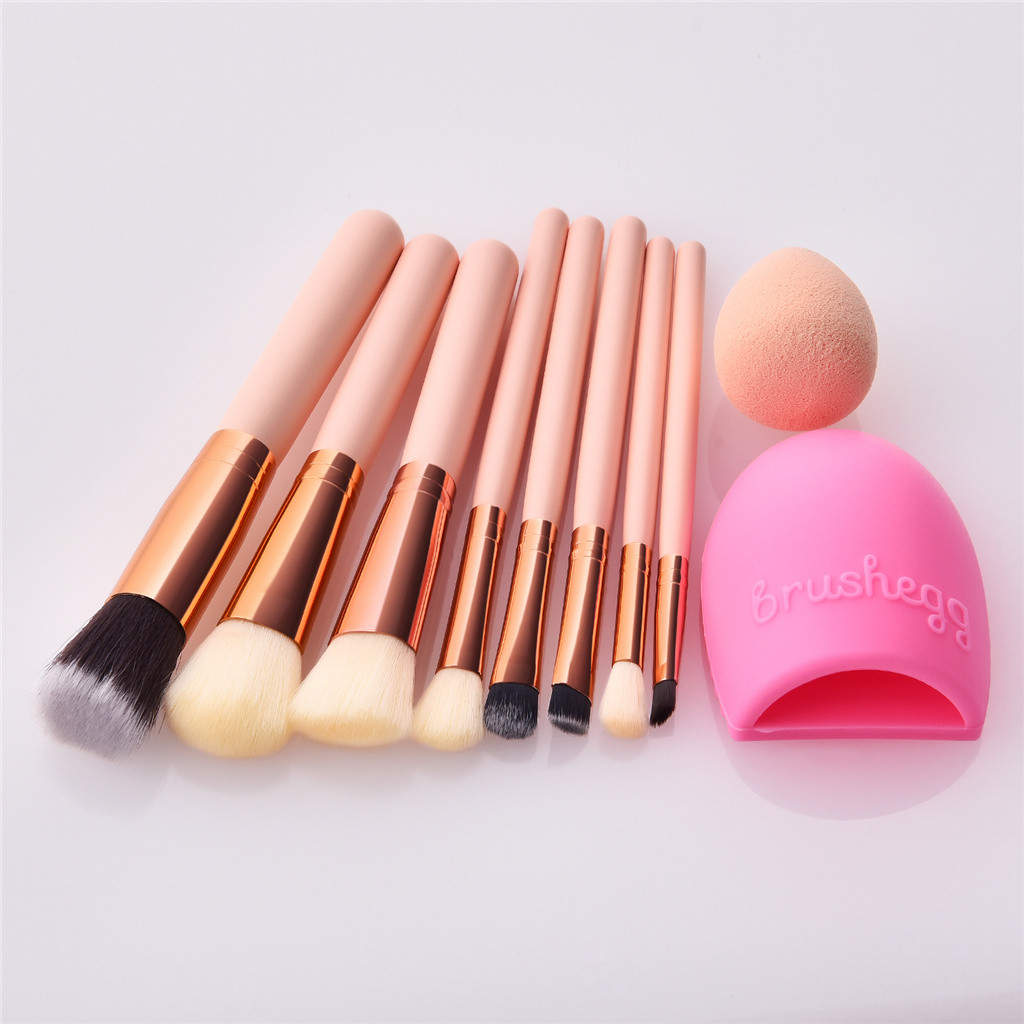
Why brushing is important
When applying makeup, cosmetics of various textures, dry or liquid, are used. Naturally, after working with them, not only traces of cosmetics remain on the instruments, but also microparticles of the skin, bacteria from its surface.
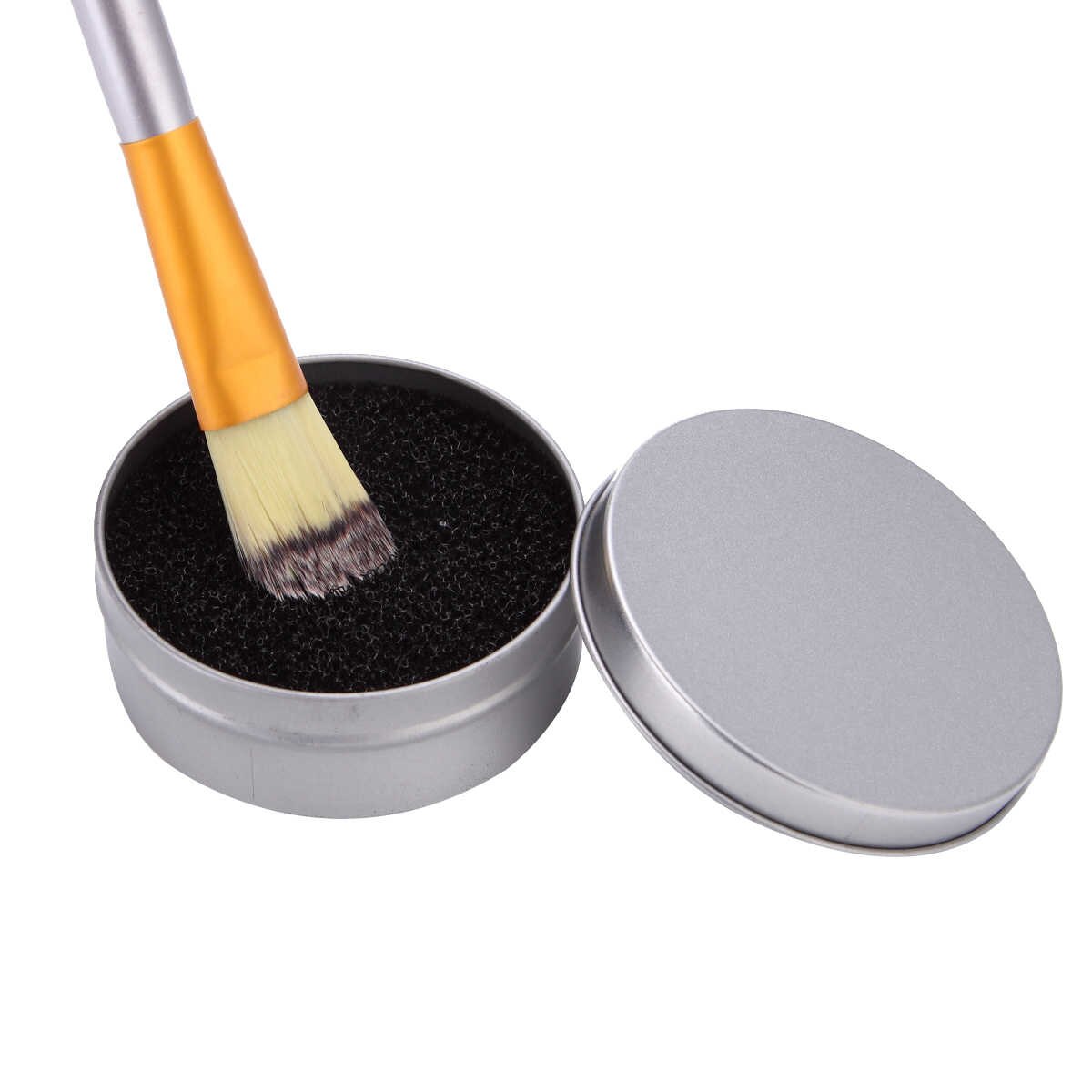
It would be logical to assume that cosmetic brushes that are not cleaned after use are an excellent breeding ground for bacterial microflora.
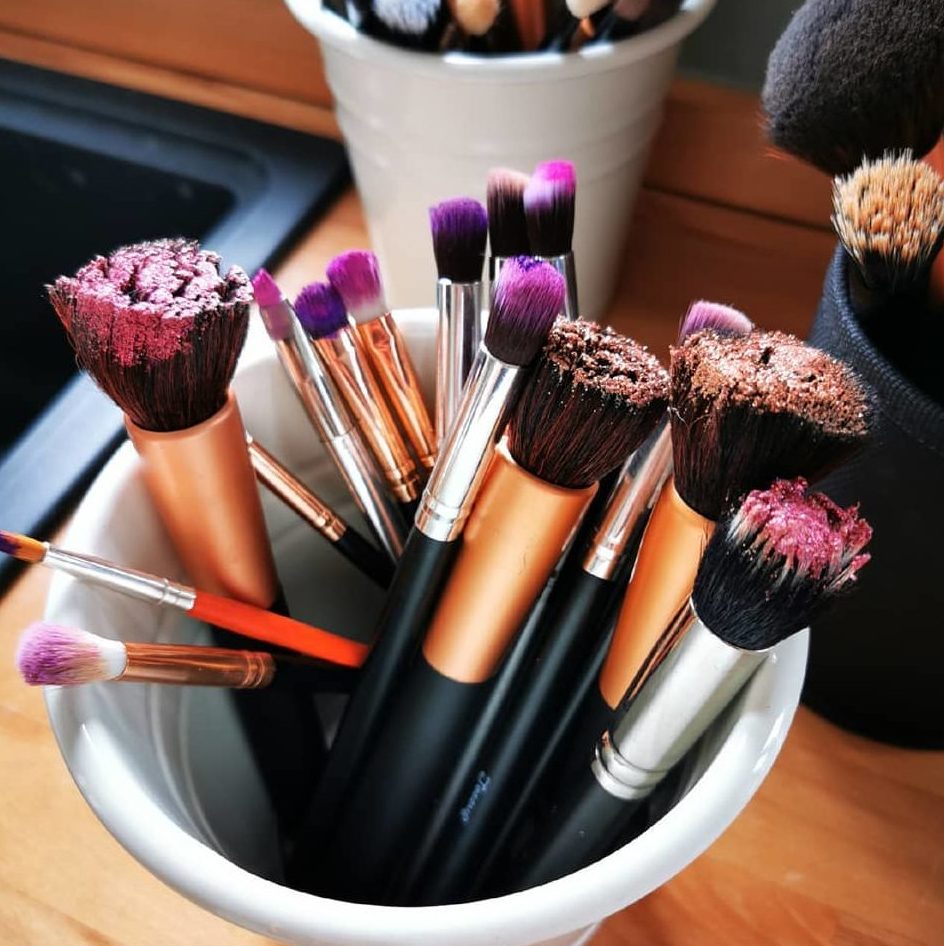
If you systematically use such tools, there is a very high risk of not only small blackheads and pimples appearing on your face, but also more serious consequences.
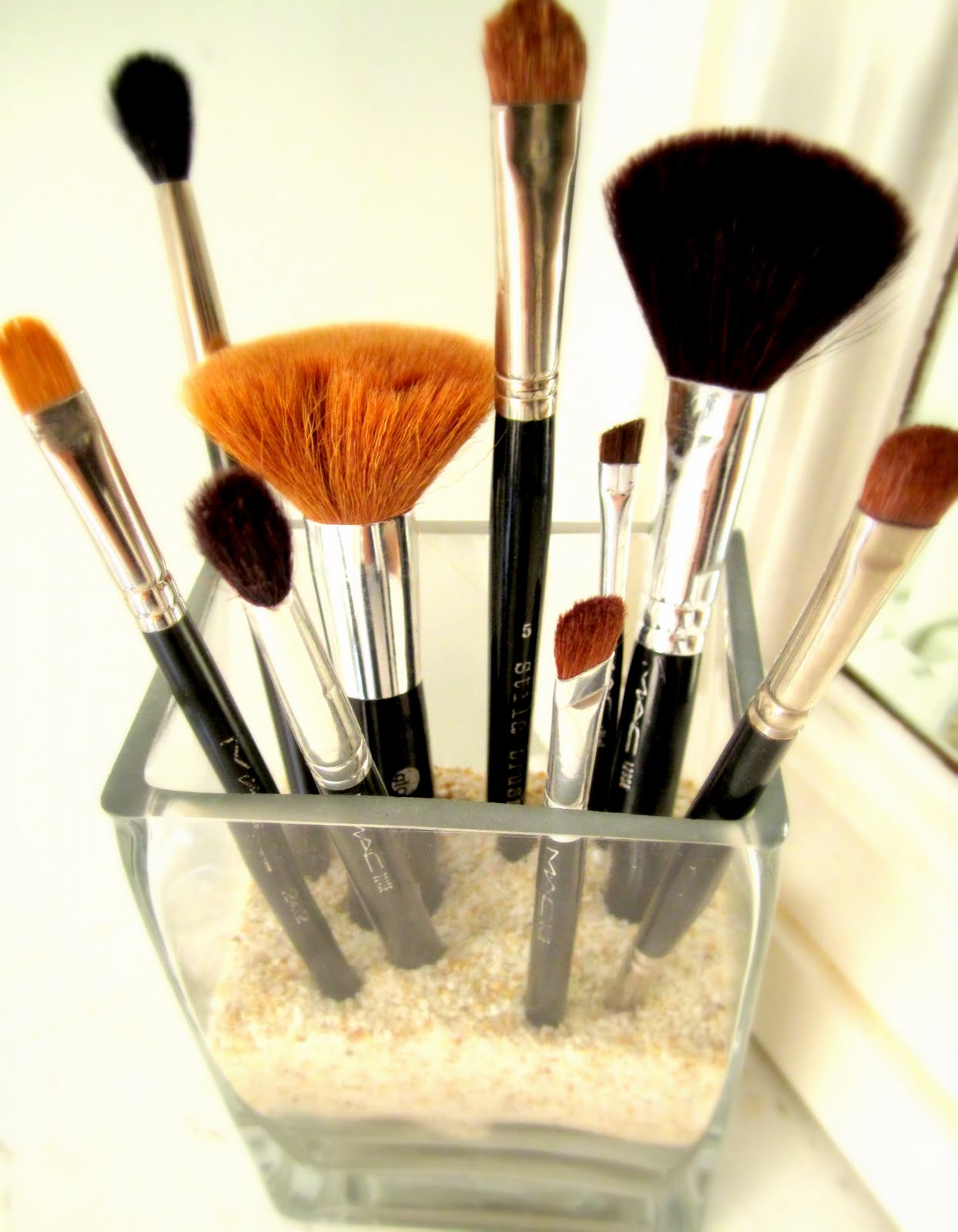
Perhaps the development of fungal infections, inflammation of the sebaceous glands, the appearance of abscesses, followed by the formation of scars. Agree, not the most pleasant prospect. None of this will happen if you know how to properly wash your makeup brushes.
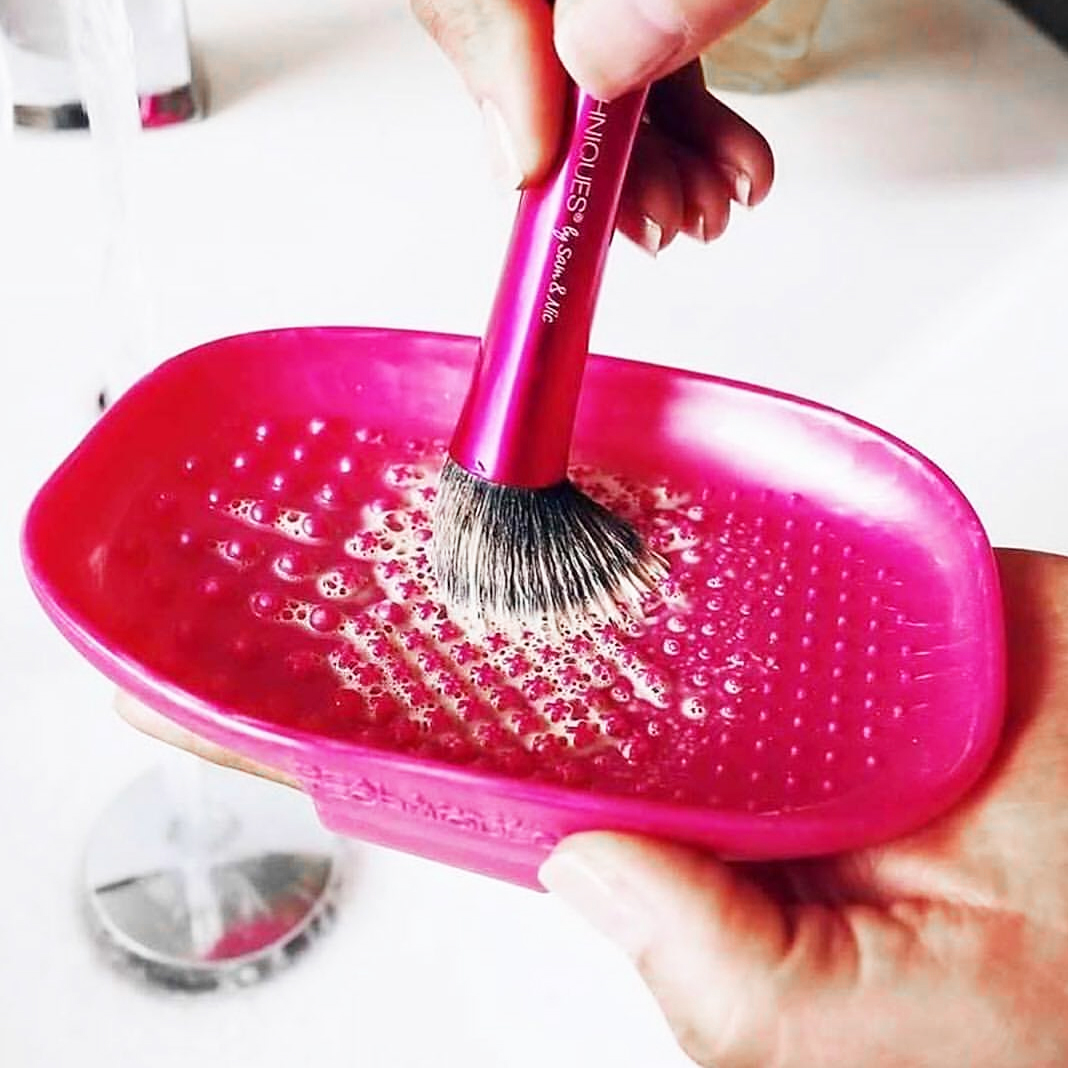
In addition to the voiced problem, there are at least two more reasons why the makeup arsenal should be kept clean:
- Maintaining the quality of brushes and extending the service life. Uncleaned brushes and sponges become clogged with makeup residues, which, over time, harden and affect their softness.
- If you use one brush to apply products of different shades and textures, then the colors of the cosmetics will mix as a result, which will certainly affect the quality of the makeup.
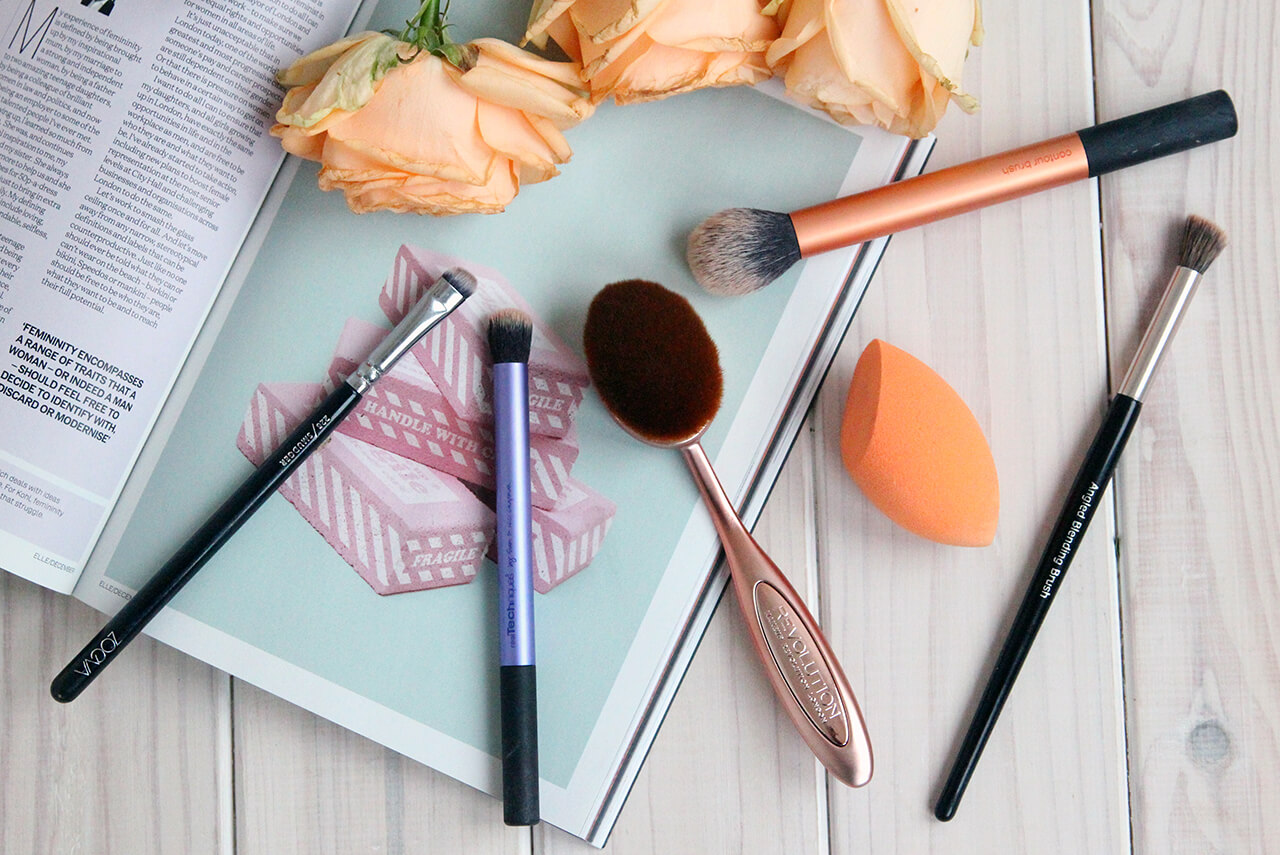
How often do you need to wash your makeup brushes?
Whenever you use a brush, a cosmetic remains on it, and grease and epithelium from the surface of the skin of the face collects on the bristles. Add in the dust that settles during storage and the picture of contamination will be quite impressive. Therefore, the hygiene of the makeup tools is very important.
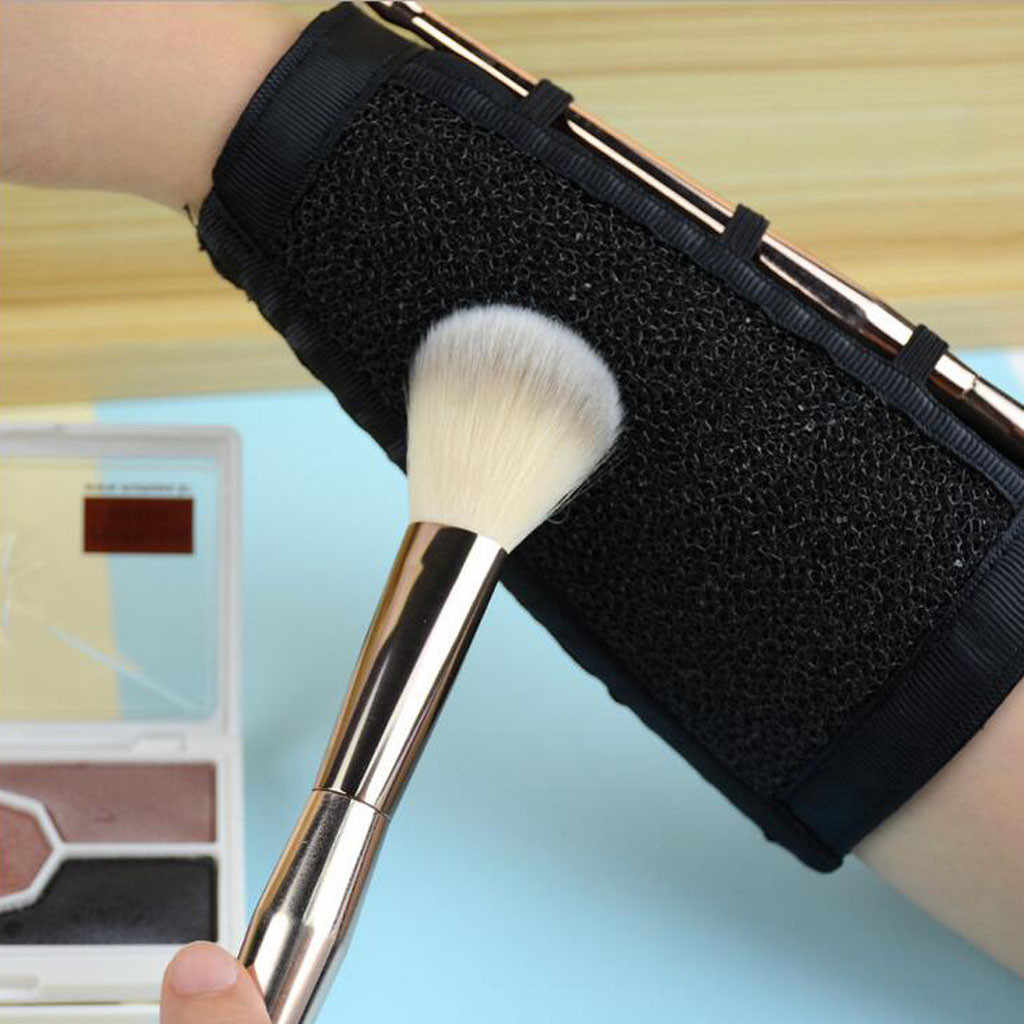
The frequency with which you need to clean the tools depends on the type of device:
- Sponge, beauty blender - designed for applying a creamy, tonal base, while a significant part of the cream is retained in their sponge. To get rid of it, you need to rinse the sponge after each use. It would be optimal to replace it with a new one every month.
- A brush for liquid cosmetics requires cleaning as often as it is used. The texture of such cosmetics promotes adhesion to the brush pile. If the dirt is not removed in a timely manner, then, after drying, they will negatively affect the quality of the next make-up.
- Brushes for applying eyeshadow, powder or blush, make-up experts recommend washing at least once every two to three days. At the same time, on the day when washing is not supposed, the remainder of the products after make-up should be cleaned with a dry cloth.
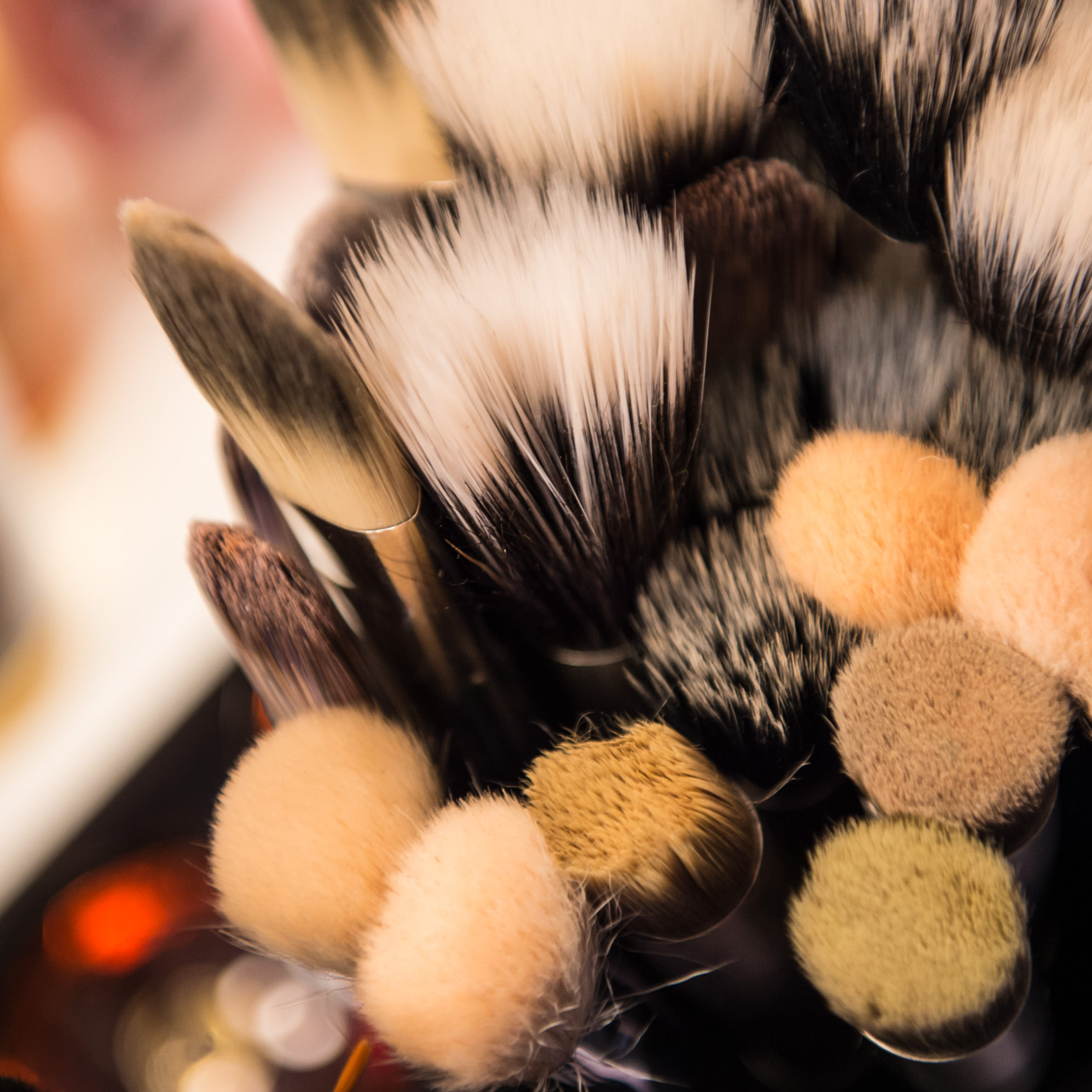
What are the best tools to use
When choosing tools for cleaning make-up tools, first of all, they are guided by what material the brushes are made of. Synthetic bristles can be easily washed off with organic soap or eco-friendly dish detergent. For natural material, professional means with antibacterial substances will be required, in extreme cases, shampoo for children is suitable.
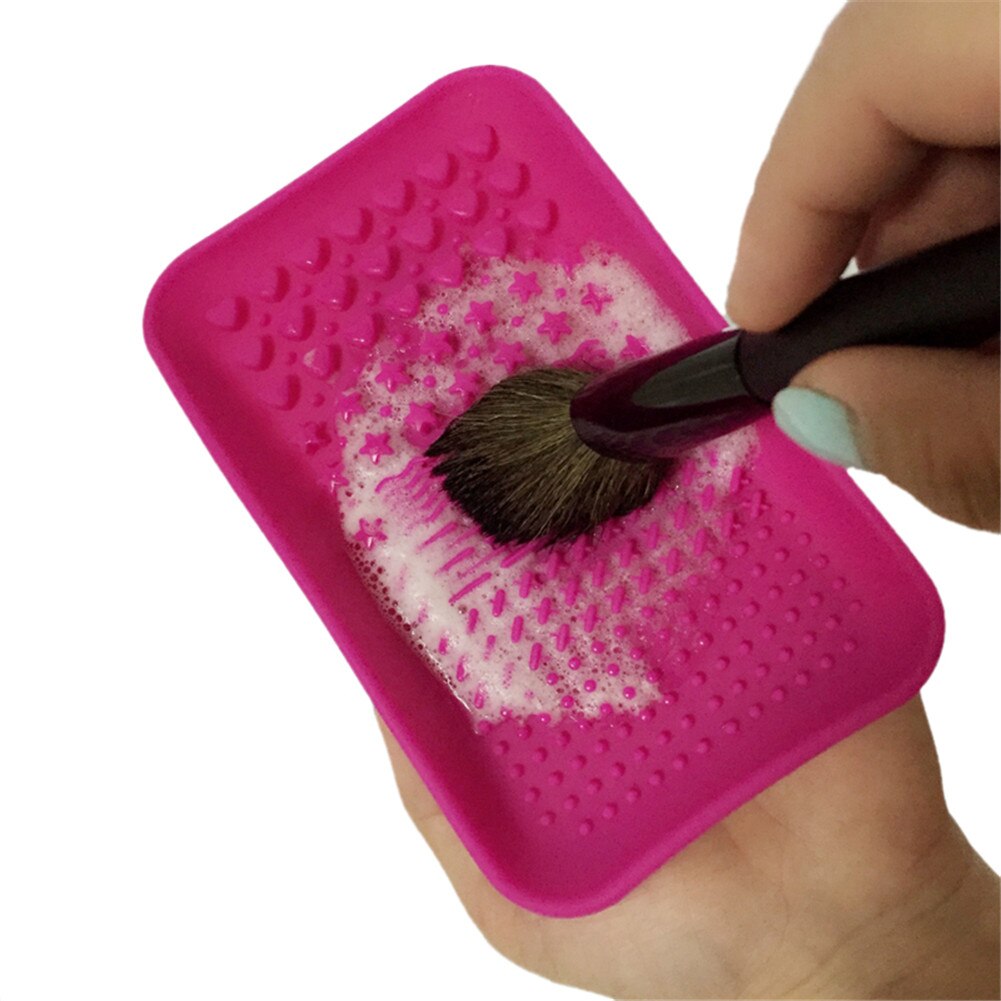
How to cleanse a sponge from foundation? Brushes and sponges used for creams are cleaned with special sprays or oils previously applied to a napkin. The sprays are antibacterial and are most often used daily for quick cleaning.
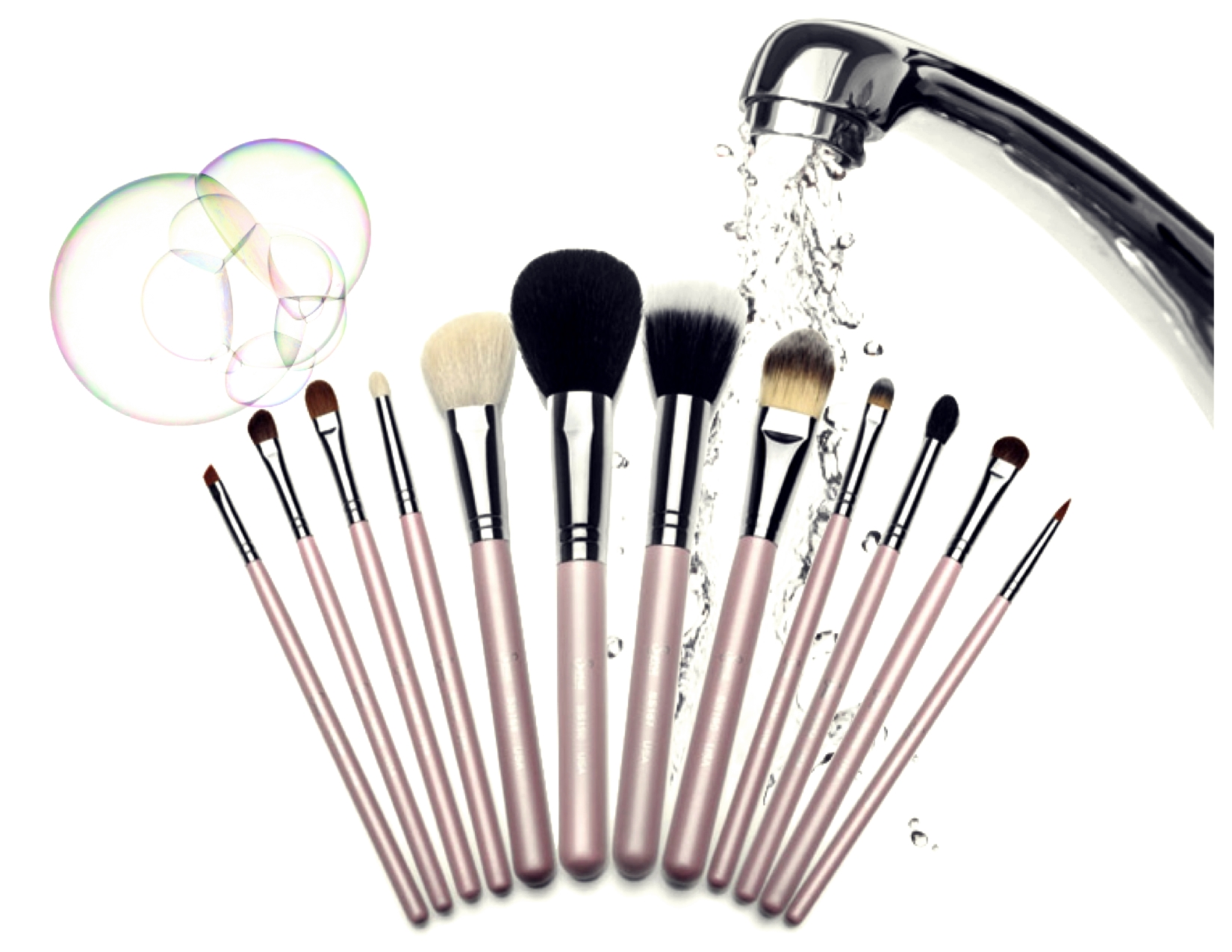
Ideally, a make-up brush care kit should include shampoo for washing, special spray or oil, wipes.
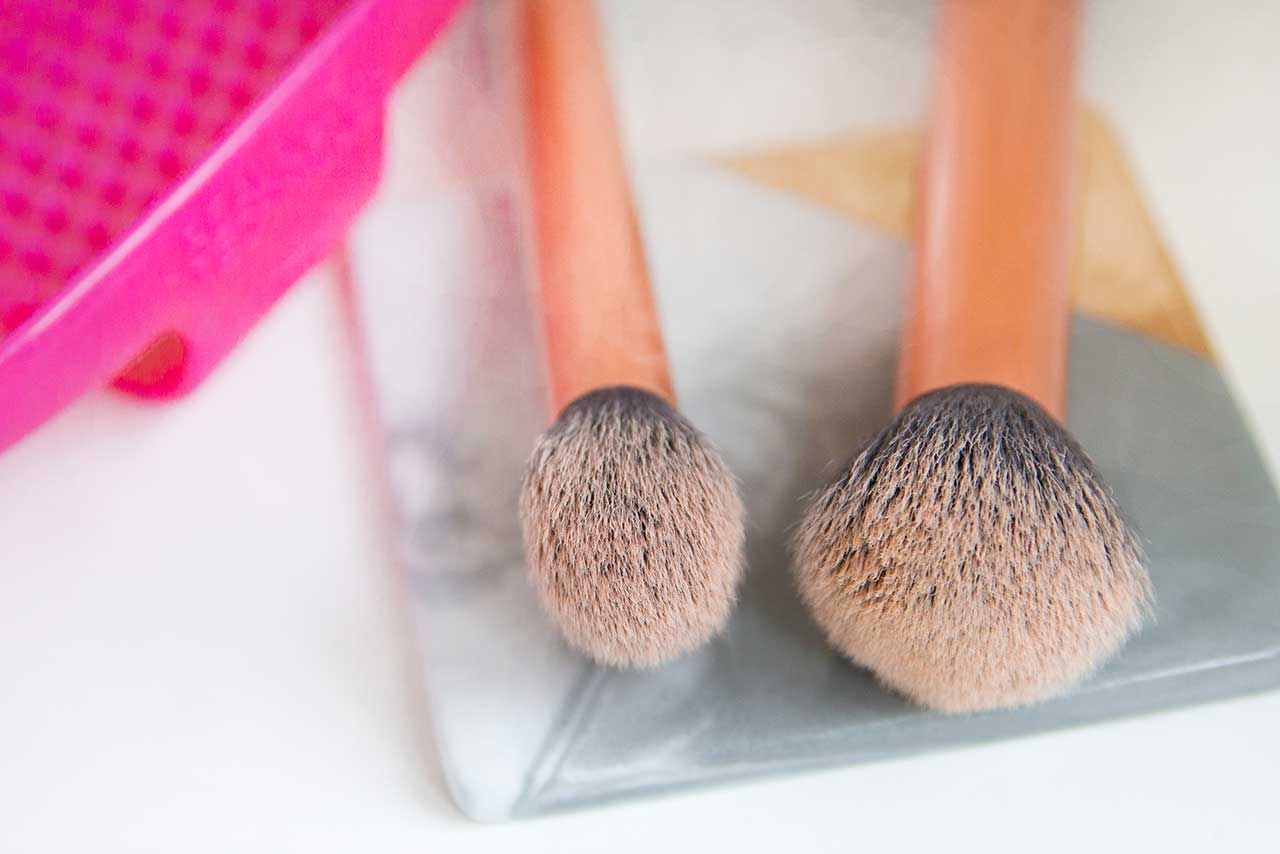
Some people think that you can do without special products, using regular shampoo or hair gel, or even laundry soap. This approach will significantly shorten the life of your makeup brushes, especially those with natural bristles. In this case, it is better, nevertheless, to resort to using baby shampoo.
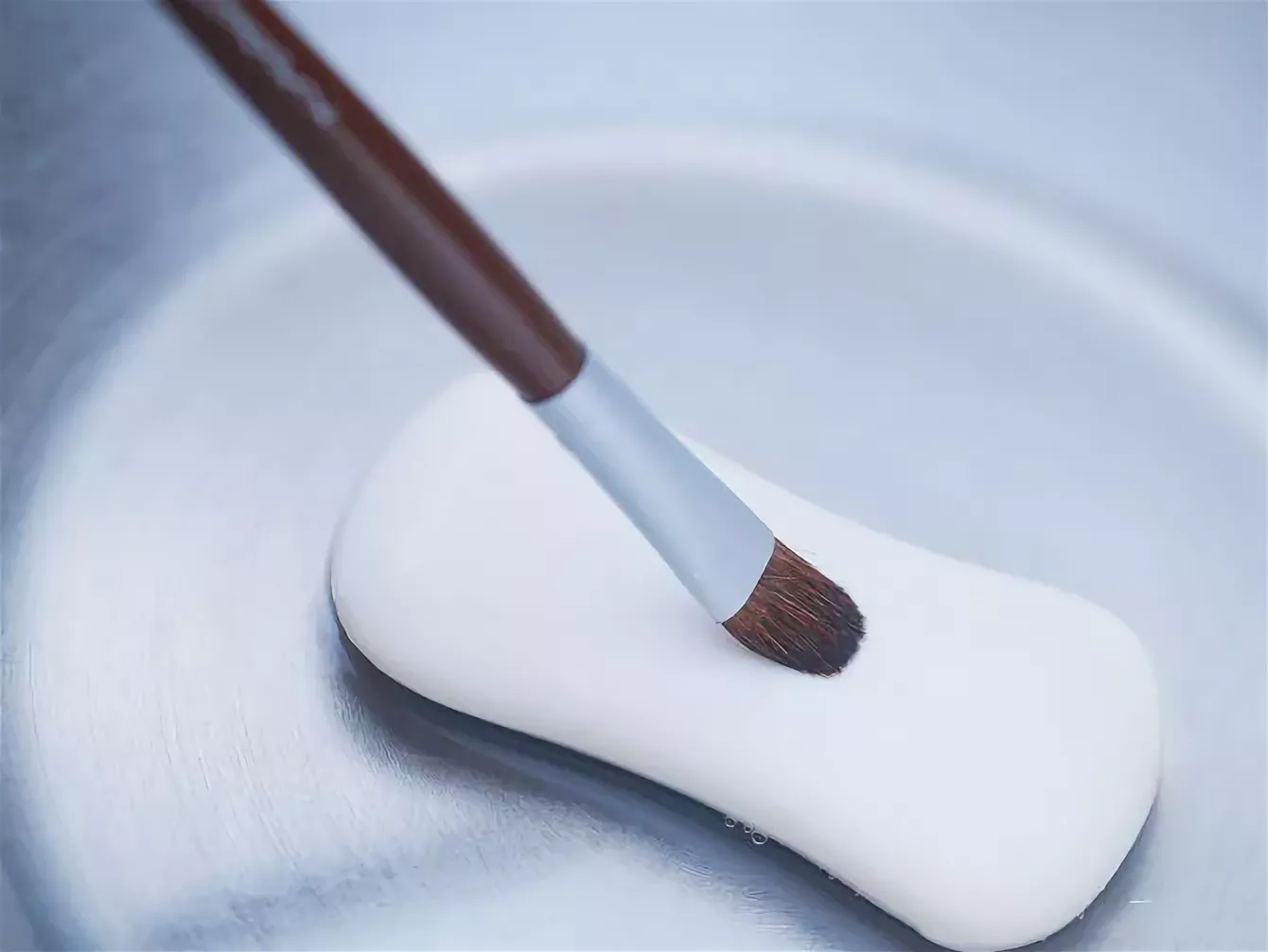
To feel like a real pro, and to ensure the right approach, get a finger applicator or a silicone mitten and a drying stand for delicate brush cleaning.
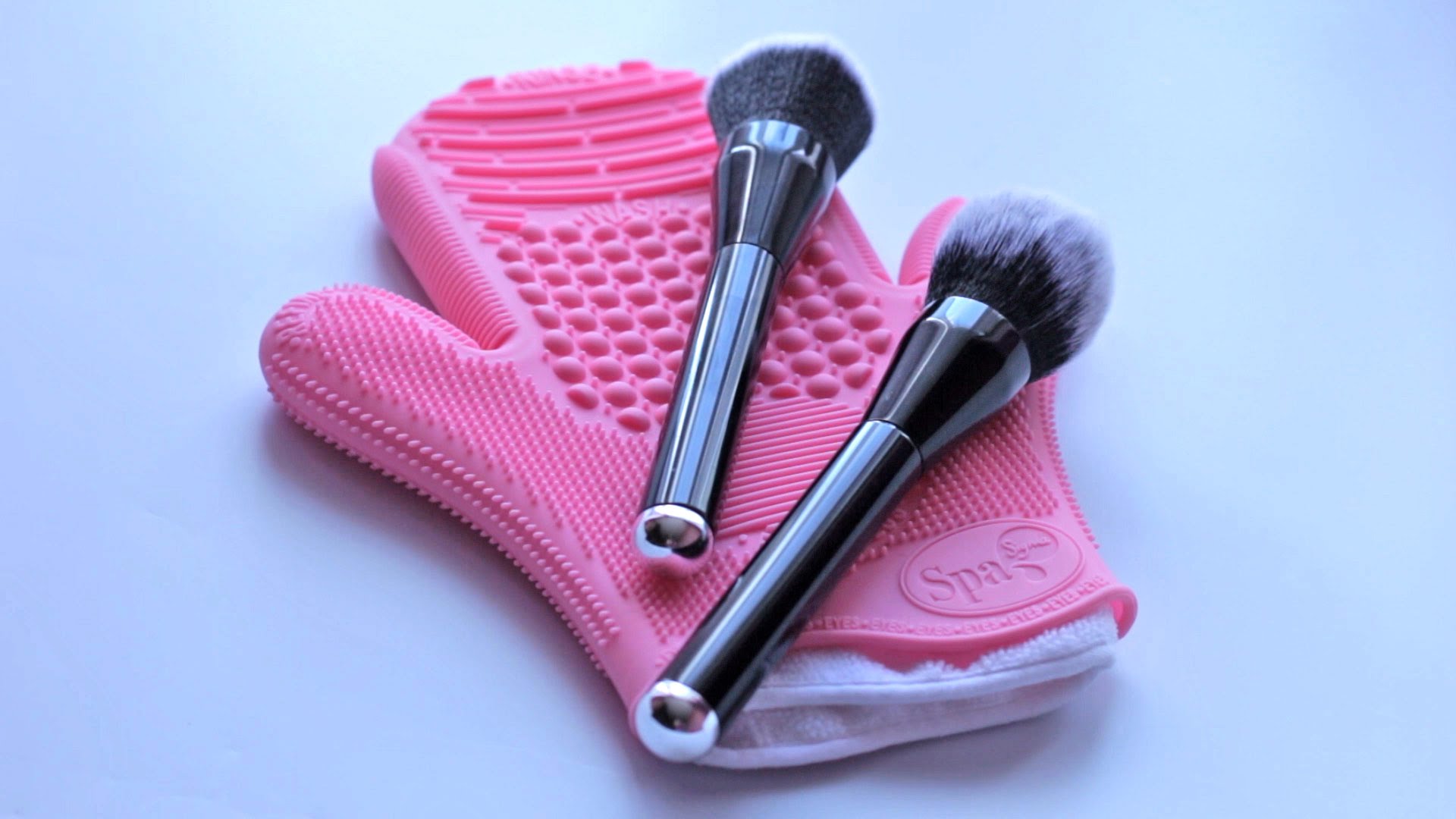
How to properly clean and wash your makeup brushes
In order to preserve the quality of brushes as long as possible, it is necessary to promptly remove dirt from their surface. Let's take a look at how to properly clean your makeup brushes using home remedies and more.
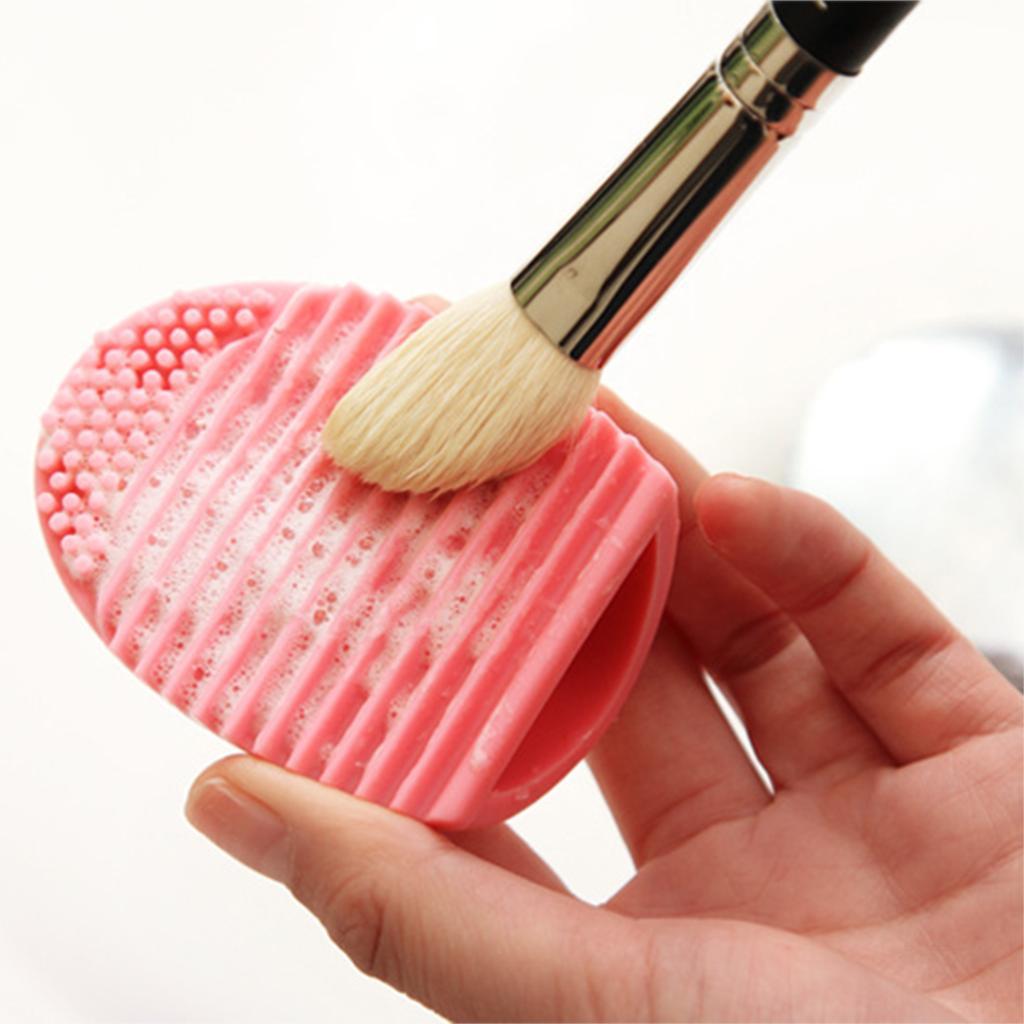
According to the nature of the effect on the surface of the tool for decorative cosmetics, cleaning methods can be divided into two types:
Surface cleaning
Provides frequent express care and removal of dry cosmetic residues or cleaning with a thin brush for liquid concealers. On the bristles, with light, rubbing movements of your fingers, apply a little antiseptic and, after a minute, gently wash with a napkin until the dirt or pigment is completely removed.
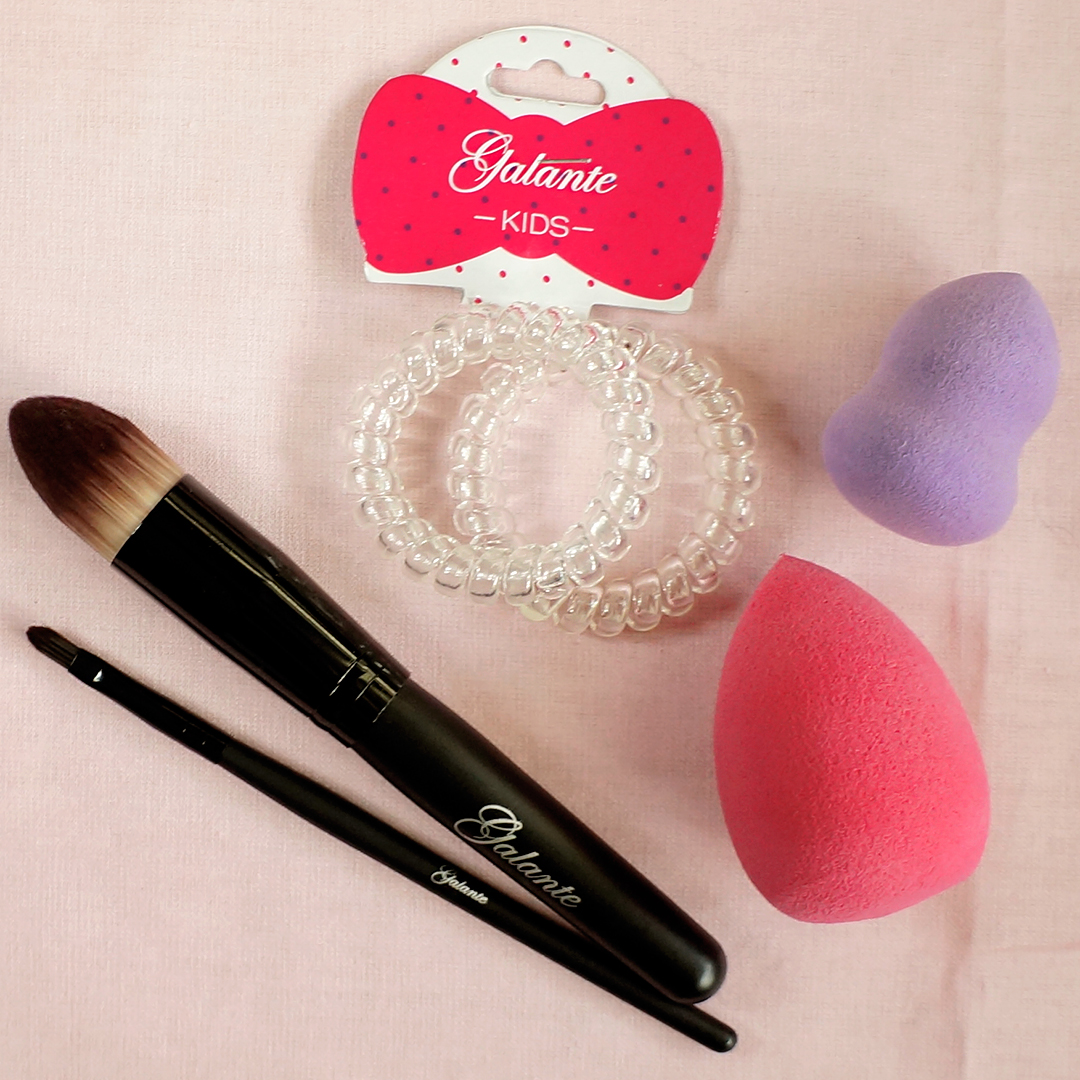
Deep cleaning
A more effective method that allows you to remove not only the remnants of cosmetics, but also bacteria, and microparticles of the epithelium, and sebum. Such cleaning is achieved through the use of detergents. The choice of detergent depends on the bristle material of the brush.
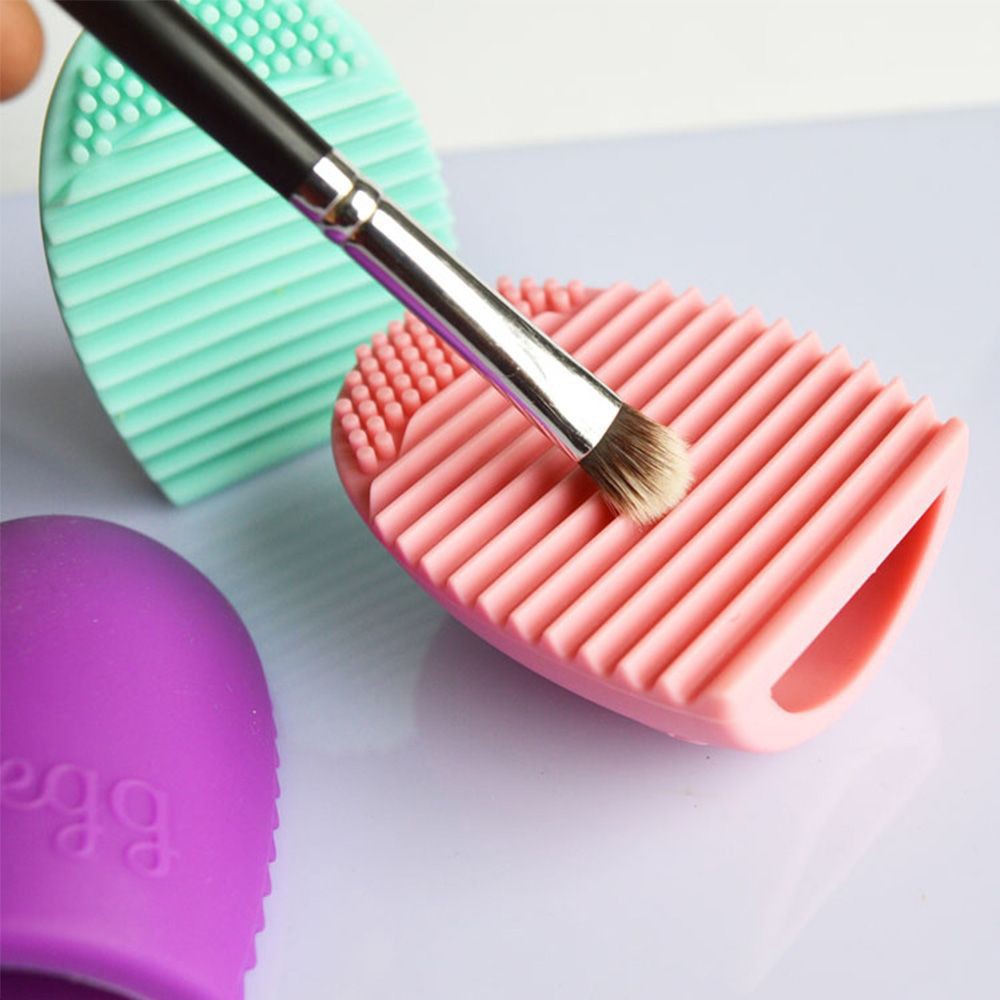
We will dwell on deep cleaning in more detail and consider how to wash a make-up tool using a home arsenal of detergents:
- After wetting a sponge in warm water, apply some baby shampoo to it. Foam and rotate gently with three brush bristles on a sponge. We squeeze out the dirty water and repeat the operation until it is completely cleaned. Finally, rinse the brush with running water.
- Dip the brush shallowly into natural vegetable oil and rub it into the villi with massage movements.After waiting 15 minutes, wash off the oil with a sponge and natural soap. At the end, rinse the brush under a stream of warm water.
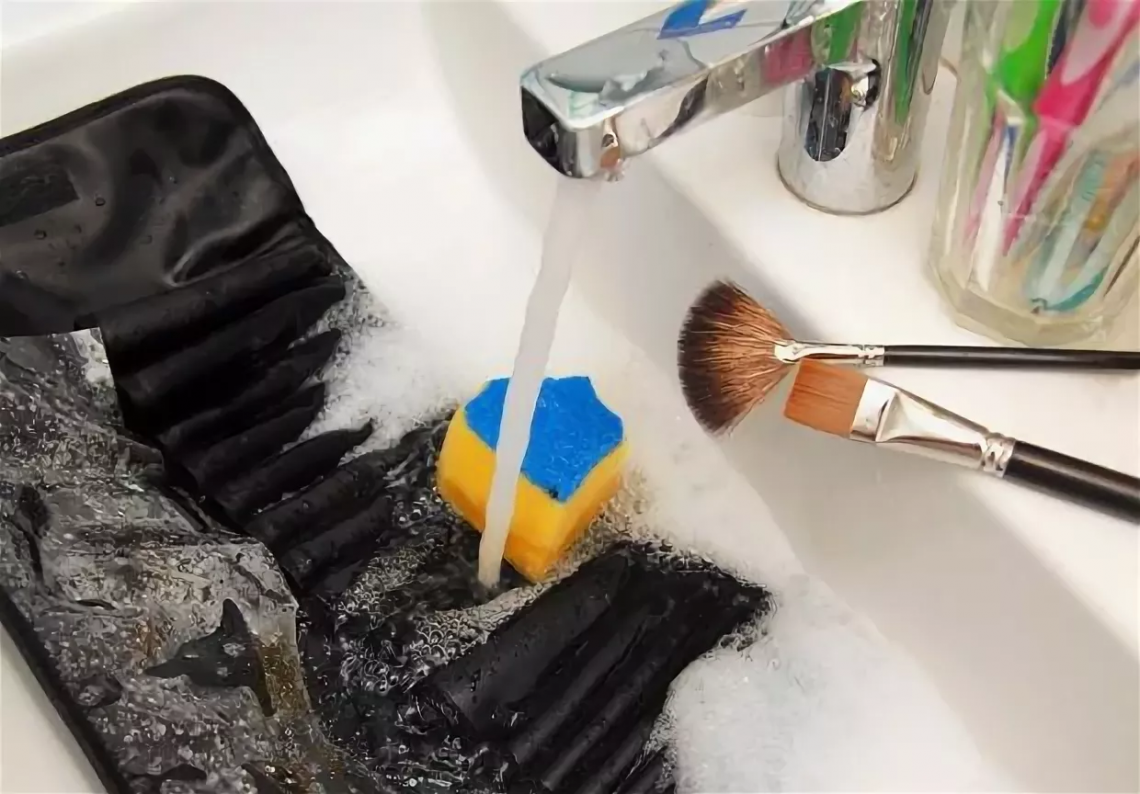
Drying features
Drying is required after every wash. How to dry makeup brushes, vertically or horizontally? There is no fundamental difference, but it will be more professional to dry the brushes on a special stand in an upright position, the bristles should be directed downward.
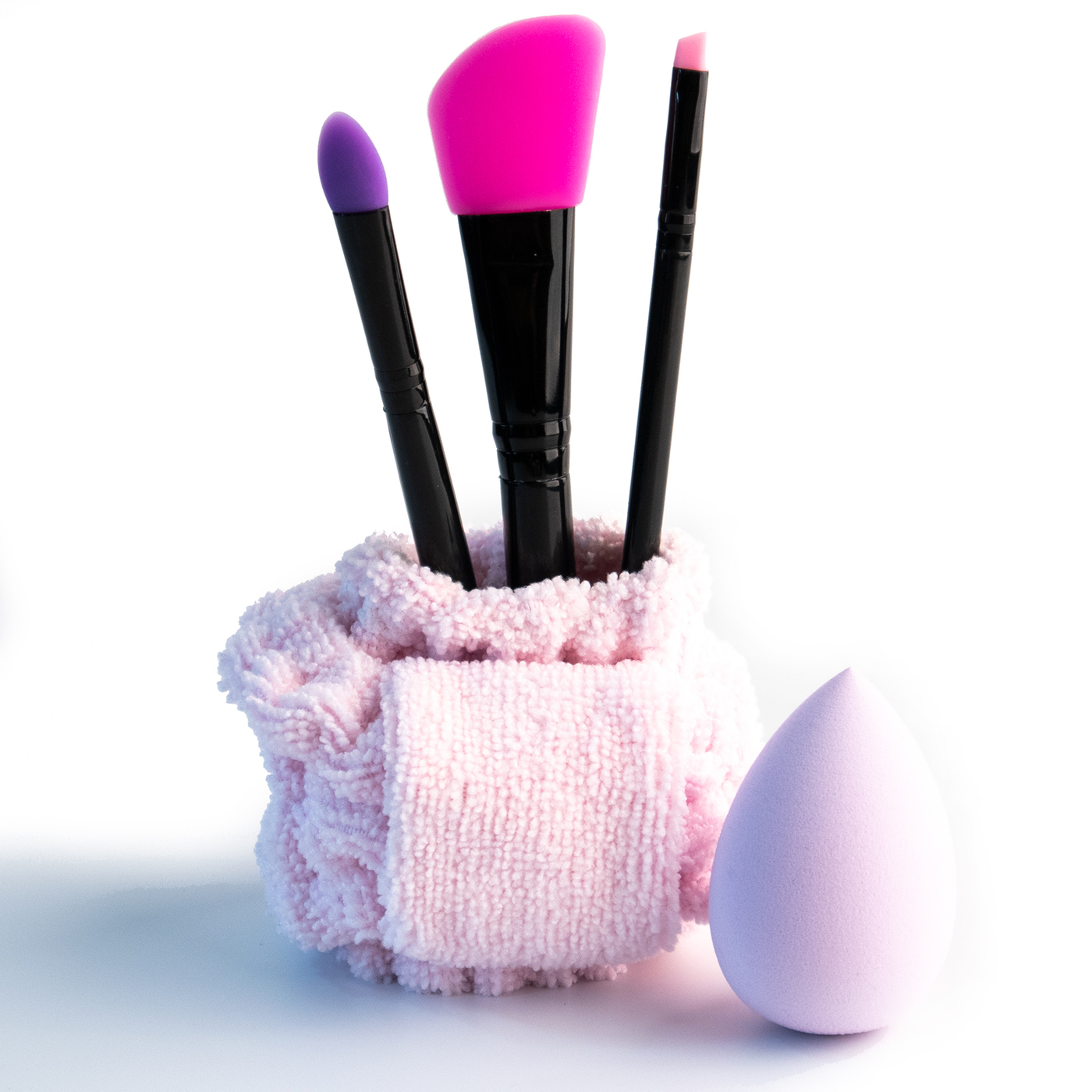
There is no stand, it doesn’t matter, let us dry it horizontally. To do this, with your fingers, lightly squeeze out the remaining water from the bristles and lay out the brushes on a clean towel.
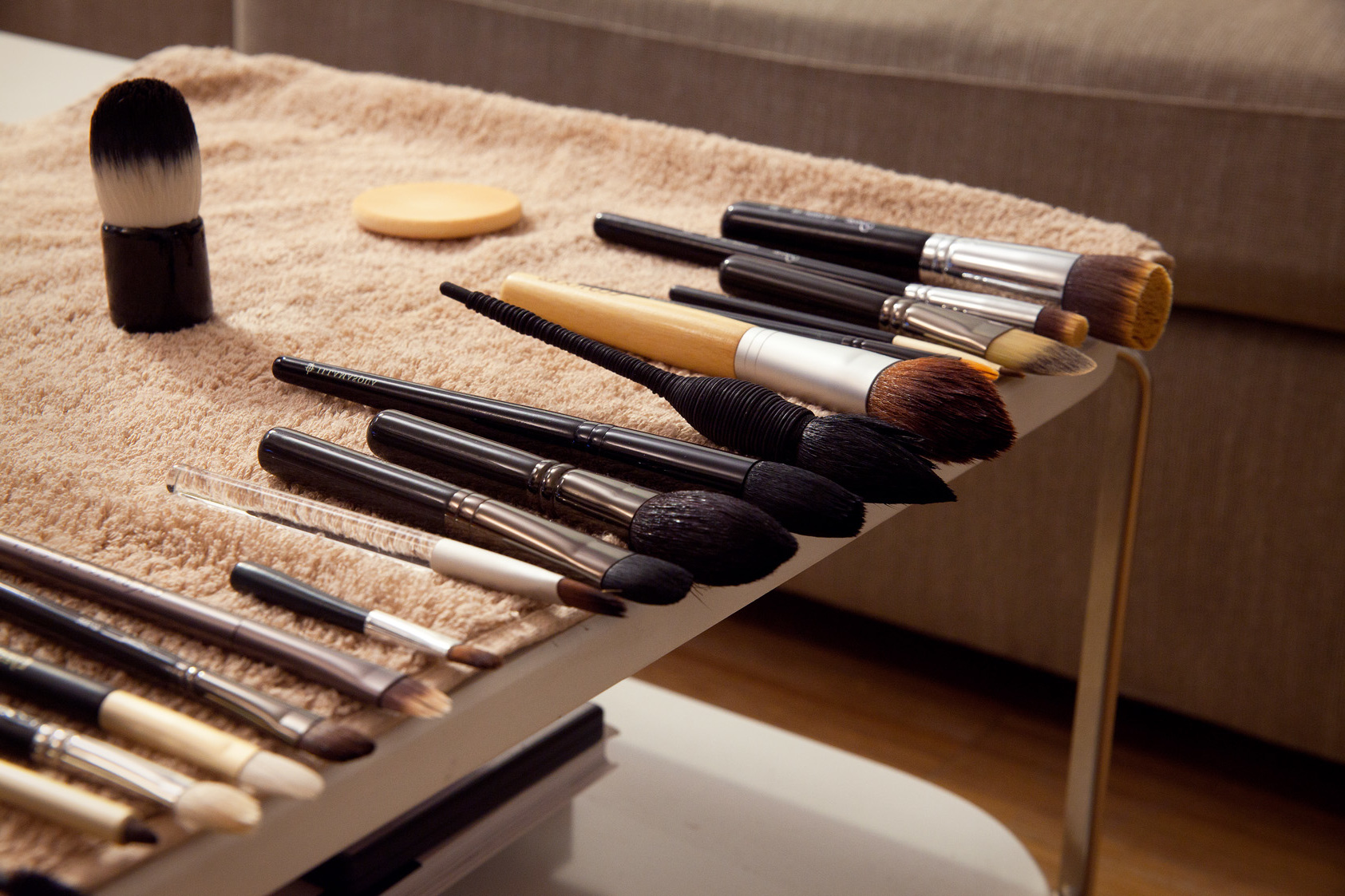
How to dry:
- on a heating battery;
- hair dryer;
- in a glass, jar and the like.
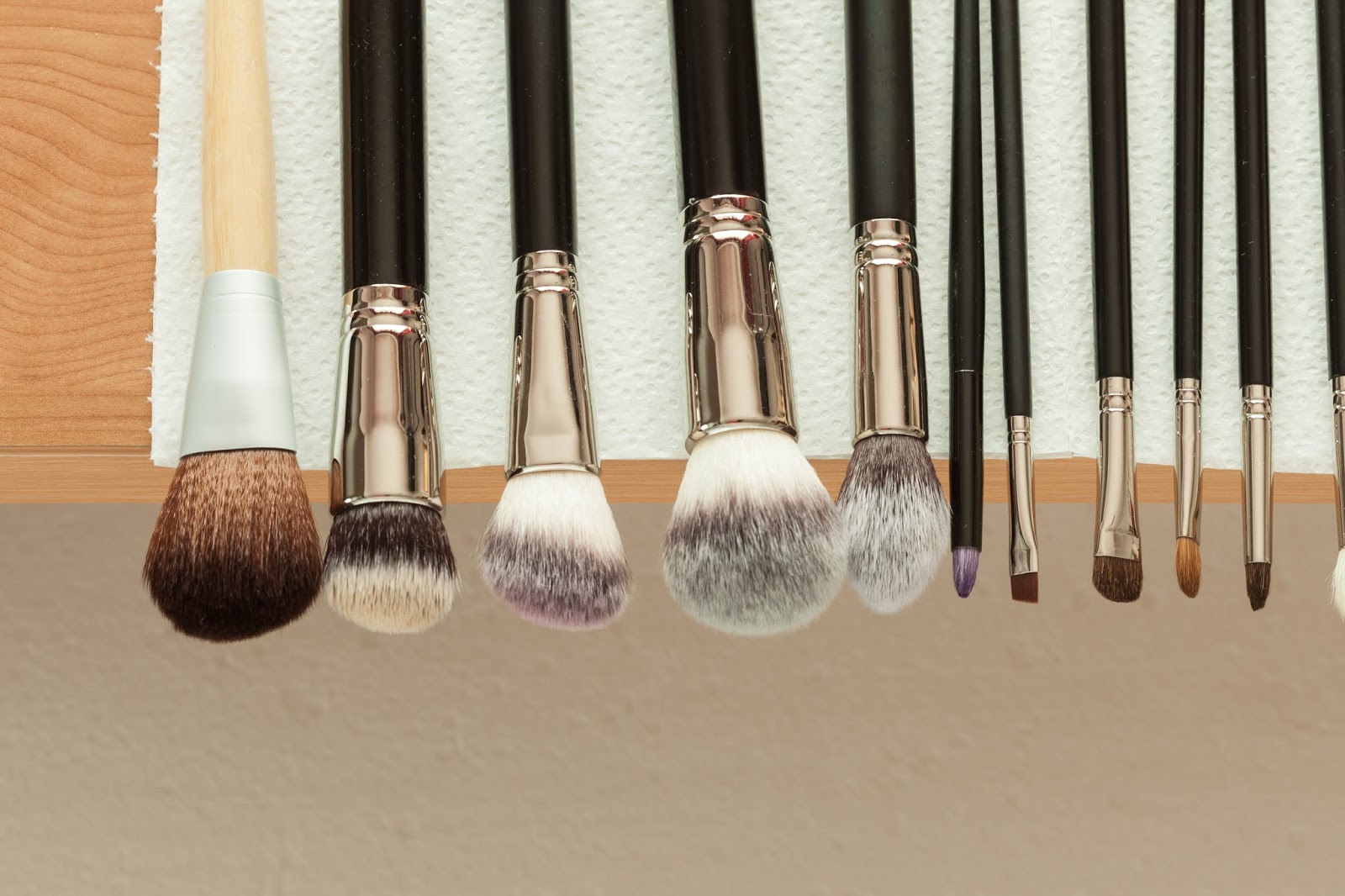
How to store it correctly
The more we love the tassels, the longer they serve us. After the brush has been washed and dried, it must be stored somewhere until the next use.
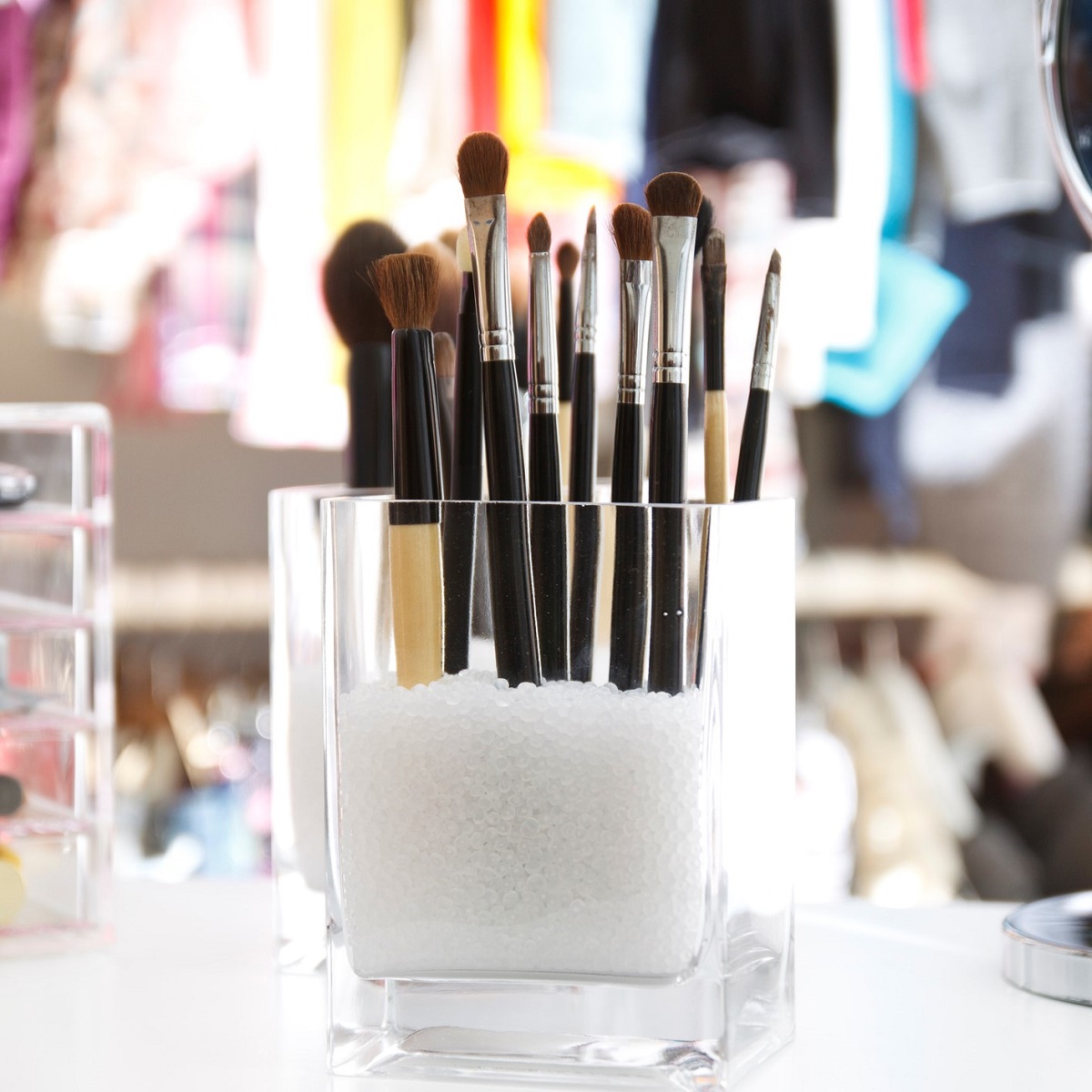
When choosing a device for storing make-up tools, you should pay attention to the following aspects:
- the height of the storage system should correspond to the longest brush;
- care must be taken to protect the bristles so as not to fluff them up;
- the width of the device will depend on the number of storage units;
- the device must effectively protect against the ingress of dust and dirt.
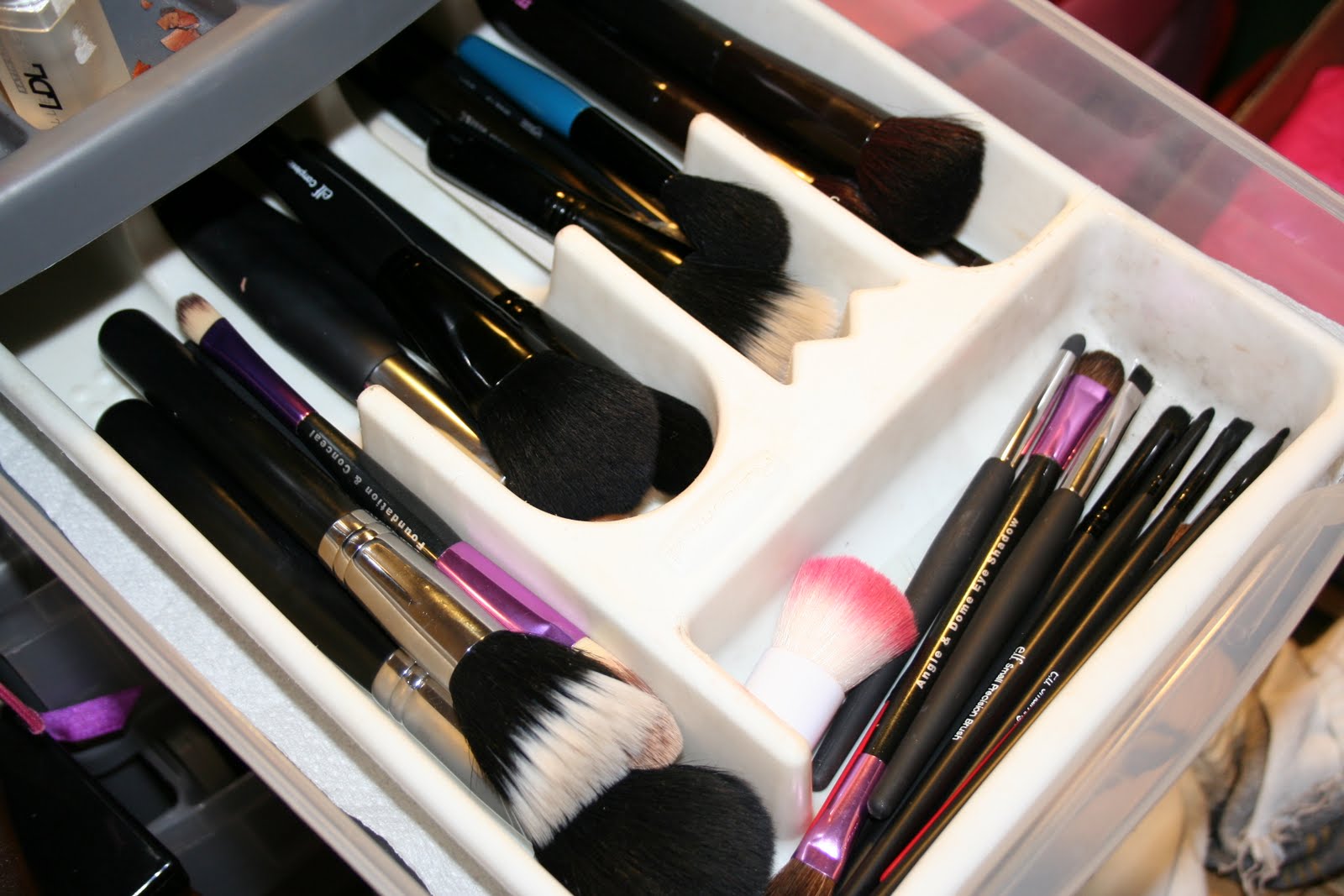
The most common and practical storage devices for cosmetic inventory include:
- covers with clips or storage pockets;
- sealed tube for vertical storage;
- container, suitable not only for storage, but also for transportation;
- tray with separate cells for each accessory.
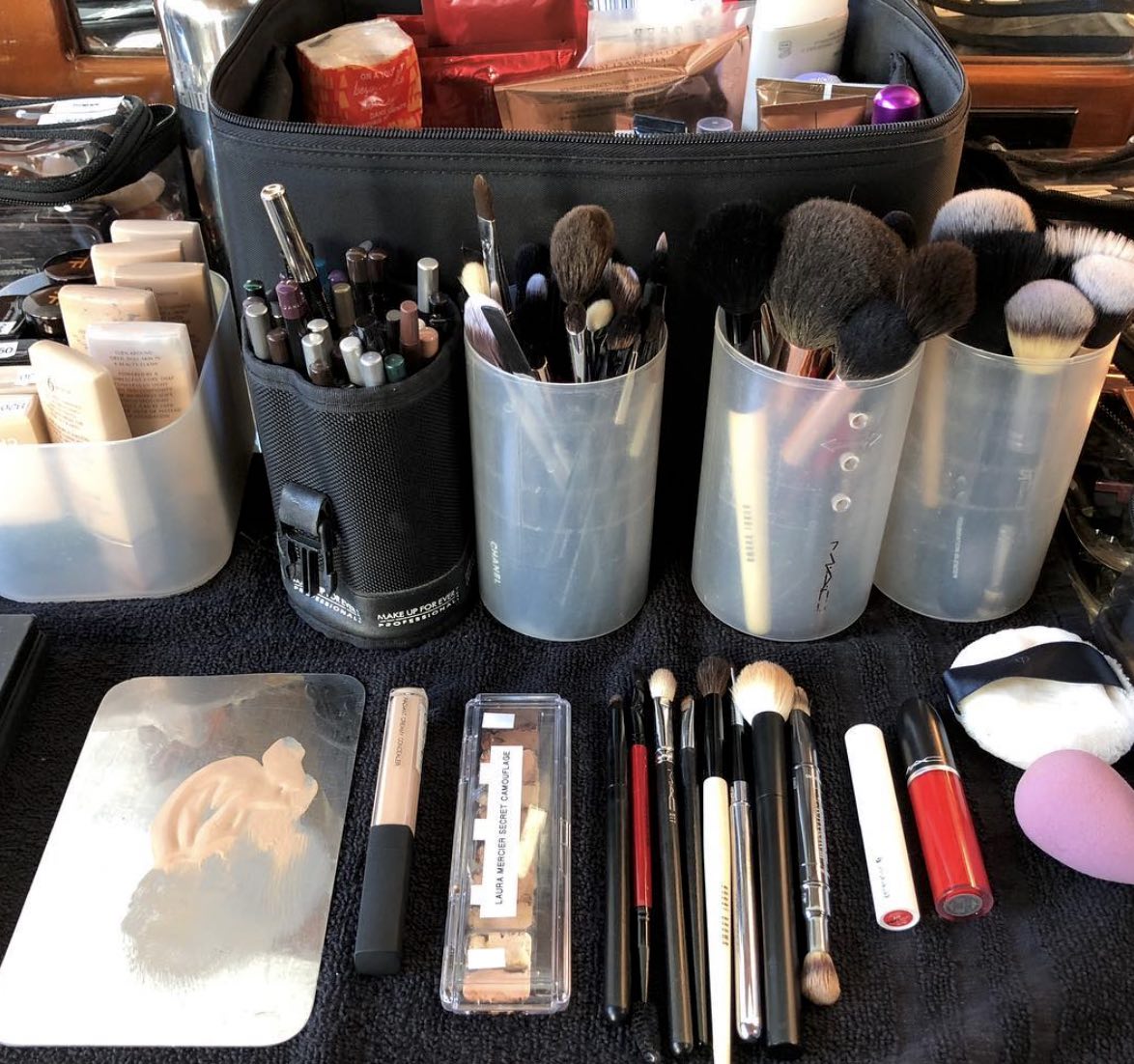
How and how to clean a makeup sponge
Taking care of cosmetic sponges is very simple. And yet, before you clean the sponge from the foundation, do not be too lazy to read the brief recommendations on the topic:
- foundation is easy to wash off with baby soap or shampoo;
- wet the sponge in a stream of warm water;
- lather shampoo on it and rinse;
- continue cleaning until the sponge is completely washed off.
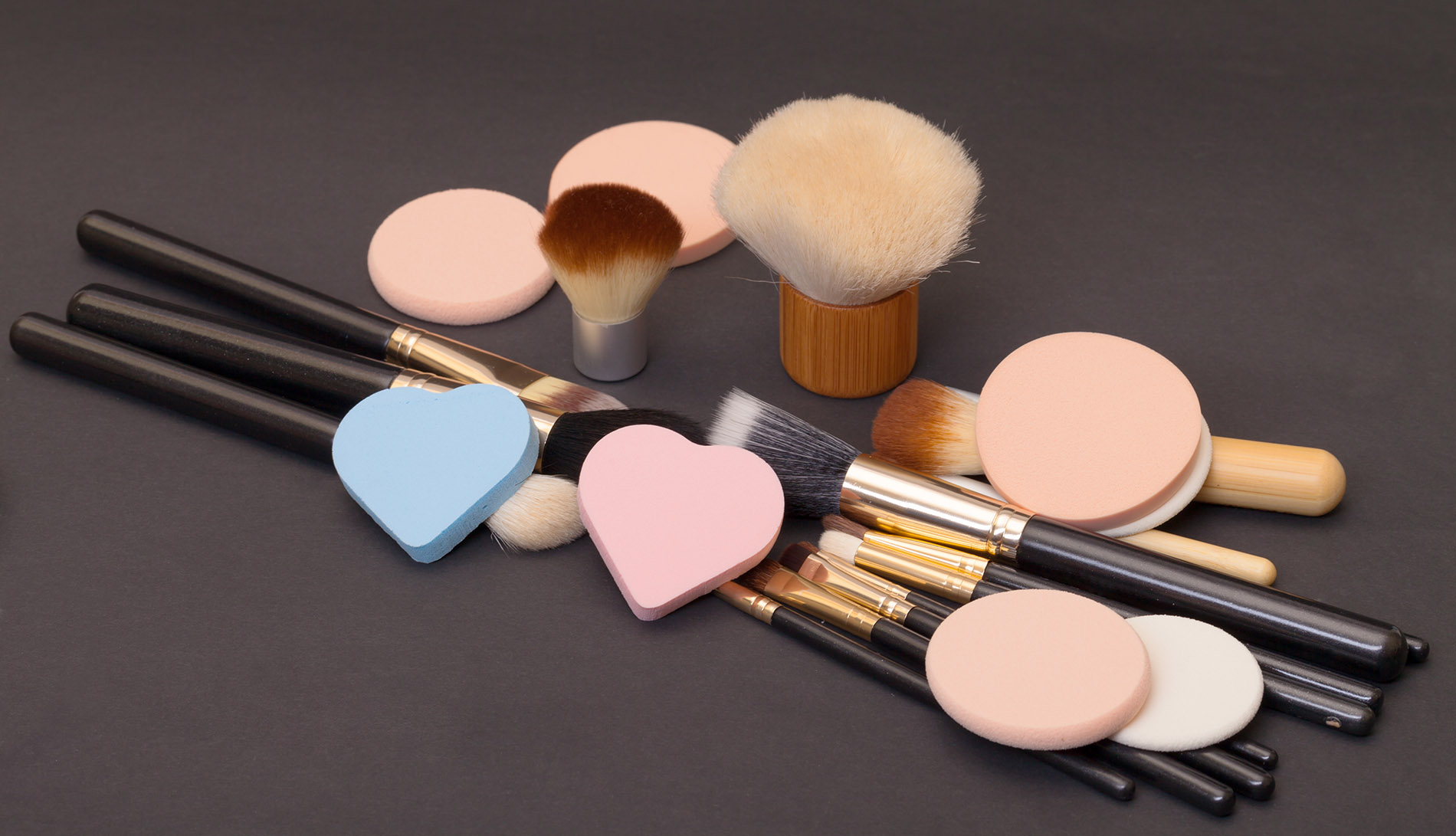
The make-up master is almost a magician. A brush in skillful hands can work wonders. But for the result to be truly unsurpassed, the instrument must be kept clean. Proper care and storage of cosmetic brushes is the key to beauty and success.
Video: how to wash makeup brushes

